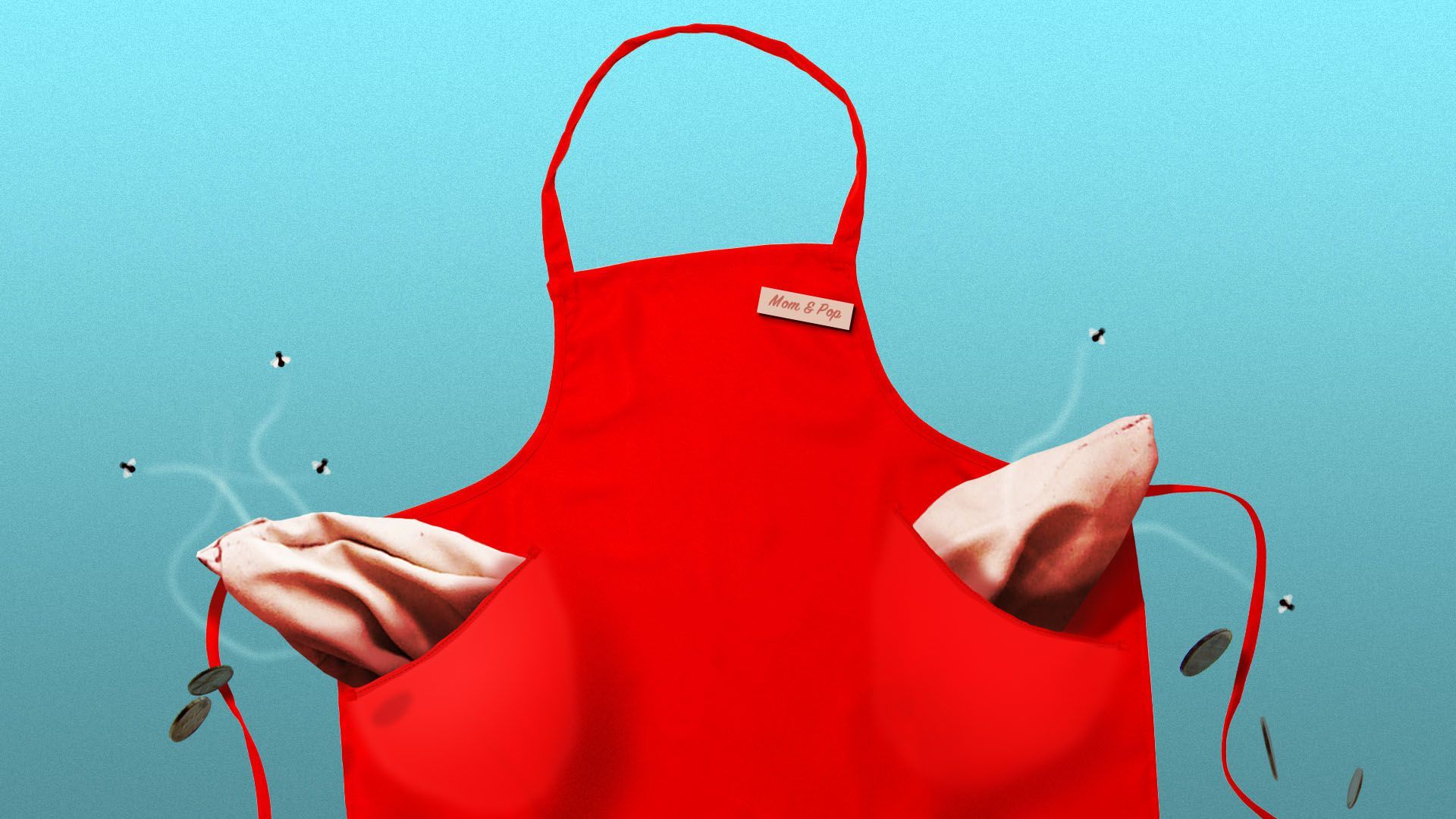Why Congress is doubling down on the Paycheck Protection Program
Add Axios as your preferred source to
see more of our stories on Google.

Illustration: Sarah Grillo/Axios
Renewing the Paycheck Protection Program (PPP) is one of the few things Democrats and Republicans agree on and is on the short list of must-have programs for any coronavirus relief package passed by Congress before year-end. The only problem: PPP has been a major disappointment for small businesses.
What happened: While 5.2 million businesses received funding through the program, it left out many smaller mom and pop shops — disproportionately women-, minority- and immigrant-led firms. Millions ended up closing their doors.
- Economists have found the program saved far fewer jobs than the government suggests and overwhelmingly benefited bigger companies with sophisticated legal teams and strong banking relationships.
- Analysis of the SBA's data found that about 5% of borrowers accounted for half of the $522 billion distributed and 1% of borrowers got more than 25% of the funds.
What we're hearing: "The headline is always 'Let’s get a stimulus signed' and small business relief is part of it, but you read the fine print and what does that relief look like relative to what the need is?" says Stephen Nunes, a director at Next Street, a firm that works with small businesses and entrepreneurs from underrepresented communities
- "Round 1 and round 2 were not successful. We have a far more inequitable small business ecosystem than we had in February, which was already an inequitable small business ecosystem."
Between the lines: Because Congress has spent most of its time since March bickering over the size of a bill, there has been little energy devoted to figuring out what should be included in a stimulus program that built on PPP's shortcomings.
- Organizations like Next Street as well as the U.S. Chamber of Commerce, National Retail Federation and others advocated for programs like business rent forgiveness, tax breaks for PPE and cleaning expenses, hiring incentives, and expansion of low-interest loans and loan guarantees targeting underserved communities.
- Those appear to have largely been left by the wayside.
On the other side: A spokesperson for Sen. Marco Rubio, chair of the Committee on Small Business and Entrepreneurship, admits that PPP isn't perfect.
- However, he highlights an October NBER study from conservative economists R. Glenn Hubbard and Michael R. Strain that found it "substantially increased the employment, financial health, and survival of small businesses.”
- "PPP is the architecture. It's a program we now know is a proven method to get capital to small businesses,“ he tells Axios.
The bottom line: "At this point there is one package that seems to have bipartisan support, so the focus has to be on getting it across the finish line," Neil Bradley, chief policy officer for the Chamber, tells Axios.
- "There will be opportunities, particularly as we head into the new year, to figure out further revisions and further assistance. But it’s difficult to understand how that’s going to happen if Congress fails to do something in this moment."
